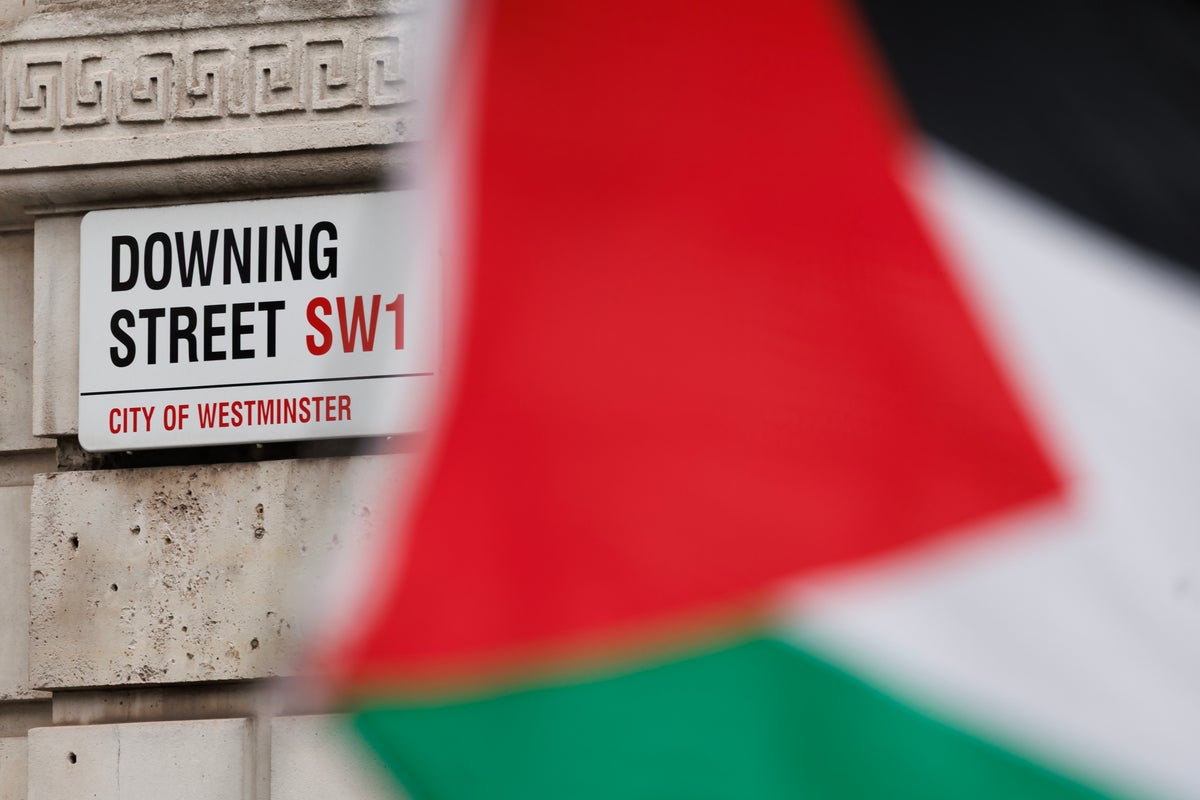Keir Starmer’s decision to recognise the state of Palestine – unless, that is, Israel agrees to a Gaza ceasefire – begs a simple question. Not so much “why?” – for decades, a two-state solution that would see a Palestinian homeland established in the West Bank, the Gaza Strip and East Jerusalem has been the policy of successive UK governments, and one that was voted for, overwhelmingly, in the Commons 11 years ago.
But, rather, how today’s announcement, following an emergency meeting of the cabinet, that the British government – exasperated by the ongoing situation in Gaza and the dwindling prospects of a two-state solution with Israel – will formally recognise Palestine in September, could have been quite so long in the making.
Britain has played a pivotal role in the pre-history of the present Israeli-Palestinian conflict, starting with the 1917 Balfour Declaration. The then British foreign secretary Arthur Balfour’s letter to Lord Rothschild promising support for a “national home for the Jewish people” set our seal on a future Israeli state.
While many Palestinians understandably see the declaration as the root of all their travails, it was intended as a classic diplomatic fudge. It did not actually specify that it would mean a Jewish state in what was then still a division of the Ottoman empire, but which would soon be under British control following General Allenby’s victory over the Turks in the First World War.
Moreover, Balfour promised that “nothing shall be done which may prejudice the civil and religious rights of existing non-Jewish communities in Palestine” – which is a quaint way of describing the existing, and then overwhelmingly Arab, population of Palestine. Nor did it say how this protection would be achieved.
But none of this alters the fact that, more than a century later, this proviso is the Balfour Declaration’s great unfinished business.
Fast forward to May 1948. The declaration of an independent state of Israel by its first prime minister, David Ben-Gurion, following the hasty abandonment of territory mandated to British control in 1920 by the League of Nations, and coupled with the Israeli army’s successful defence against immediate invasion by five neighbouring Arab states, left the new nation in control of 78 per cent of what had once been British-administered Mandatory Palestine.
The Balfour Declaration – along with the United Nations’ decision to divide the territory into two states, one Arab and one Jewish – would prove pivotal in creating a conflict that still scars the Middle East. But it is subsequent events that explain why formal recognition of an independent, sovereign state of Palestine has still not happened.
For more than half a century, Western governments – Britain included – have said that there should be a Palestinian state that encompasses Gaza, the West Bank and East Jerusalem. But in 1967, when the six-day war broke out with its neighbours, Israel seized the former territory from Egypt and the latter two from Jordan. The subsequent UN Resolution 242 called for Israel to withdraw in return for recognition by Arab states – but neither the pullback nor the recognition ever came to pass.
At that point, Palestinians still hankered after sovereignty over the whole of historic “Palestine” – including what had already been the state of Israel for almost 20 years, and from which more than 700,000 Palestinians had been forced to flee, in a displacement and dispossession known as the Nakba, meaning “catastrophe” in Arabic.
Israel, far from withdrawing from the territorial gains made during conflicts, has established settlements, meaning that at least 620,000 Israelis now live in the West Bank and East Jerusalem. Several of the most extreme members of the Netanyahu government are eager to resettle Gaza in the same way.
In 1988, there was a dramatic change of thinking within the then Palestinian leadership – its so-called “historic compromise”. Led by Yasser Arafat, the Palestinian Liberation Organisation would confine its aspiration to sovereignty over the territories occupied in 1967. All negotiations that have taken place since then – at Oslo in 1993, at Camp David in 2000, and between Israeli prime minister Ehud Olmert and Palestinian Authority president Mahmoud Abbas as part of a secret realignment plan that was never implemented – have envisaged, to some degree, a two-state solution, with Israel and Palestine living side by side.
Shortly after Arafat’s historic compromise, 78 countries recognised the new Palestinian state. Today, the number declaring formal recognition stands at 147.
Earlier this month – more than a decade after Sweden became the first EU country to formally acknowledge Palestinian sovereignty, a move followed last year by Ireland, Spain and Norway – the French president Emmanuel Macron became the first leader of a G7 country to promise he will seek to do the same at the UN General Assembly in September.
As critics of recognition frequently, and correctly, point out, acknowledging a state of Palestine that includes the West Bank, Gaza and East Jerusalem is essentially notional, since, in the absence of a successful peace process, there is no state to recognise.
Though the Palestinian Authority was granted observer status at the United Nations in 2012, along similar lines to that afforded to the Vatican, it has no voting rights. Moreover, the United States has consistently used its veto to block Palestine’s full UN membership. As recently as April, the UK abstained in a Security Council resolution vote on the recommendation regarding the admission of Palestine into the UN.
Nevertheless, France’s move – which paved the way for today’s announcement of a road map of sorts by Keir Starmer, after conversations with Macron and the German chancellor Friedrich Merz – is not an empty one. It registered growing outrage at the carnage and the scale of the famine perpetrated by Israel in Gaza in retaliation for brutal attacks by Hamas terrorists on 7 October 2023, which killed 1,200 Israelis and saw the taking of 251 hostages. The French president is said to have been especially affected by his conversations with Palestinian survivors when he visited Egypt in April.
France’s joining with Saudi Arabia in sponsoring the UN summit currently underway in New York to revive talks on a two-state solution sends a clear political message to Israel’s leadership. It is also a reminder that, since 2002, Riyadh has promised to recognise Israel – as Egypt and Jordan have already done – but only if it agrees to a return to pre-1967 borders.
Will Britain’s belated recognition of a state of Palestine make any difference? It will certainly lend weight and credence to those hoping to change minds in Washington. It would also go some way to acknowledging the UK’s historic role and duty in the region. And we can only hope that it might help solve a conflict in which the destruction, killing and starvation in Gaza is but the latest – and direst – consequence.


